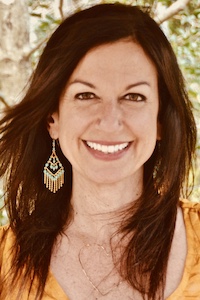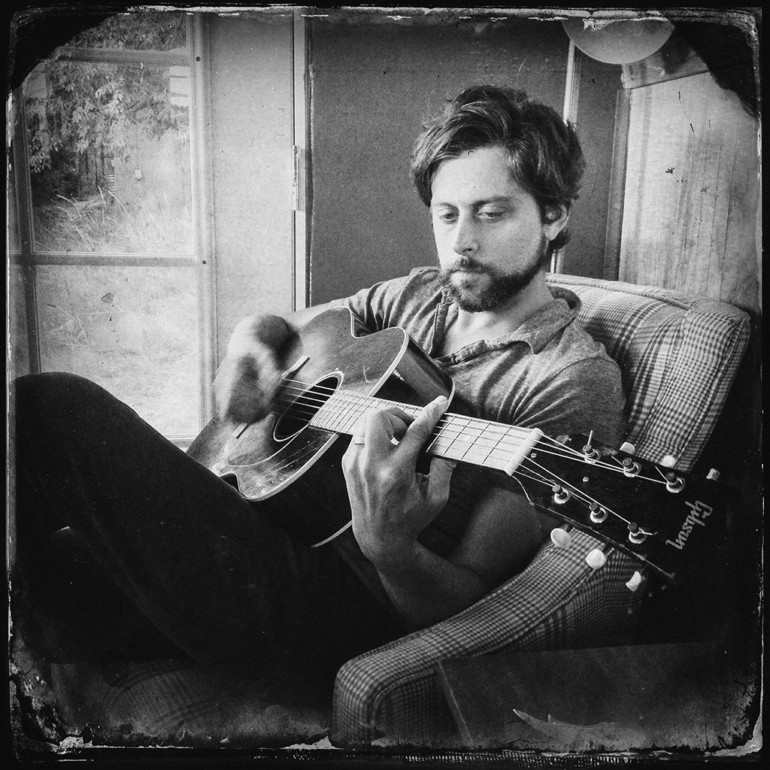David Berkeley is a Santa Fe-based singer-songwriter, author and storyteller. He has been called “a musical poet” by the San Francisco Chronicle and has been a guest on This American Life, as well as touring with artists such as Adele, Mumford & Sons, Ben Folds, and Rufus Wainwright. His latest project, The Free Brontosaurus, is a novella of intertwining short stories accompanying an album of songs, Cardboard Boat, with each story sung from the perspective of the main characters. His new EP, The Faded Red and Blue, will be released on November 2, 2018.
ER: I am absolutely delighted to interview you for Marin Magazine. I’ve loved your music for nine years, ever since an old boyfriend played me “Fire Sign.” Was that the song that put you on the map? How did that song change your life? Can you tell us who you wrote it for and what it’s about?
DB: Thanks Emilie. That was definitely a big moment for me. I was traveling in Budapest with my wife and received an email from the producers of the CBS TV show “Without a Trace” that they were hoping I’d write a song for an upcoming episode. They sent me the script, and I read it on the flight home. The show was a dark one about bullying and attempted suicide. Up until then, I hadn’t written anything on demand and had never tried to base a song on a storyline. Writing that song was a process of discovery for me–how do I relate my own experiences and pain to this character’s struggle? How do I write something that is both personal and universal?
ER: Since then I’ve seen you in concert many times, including with Ben Parker in Son of Town Hall. Can you tell us more about that duo? How are you guys able to collaborate, with you in Santa Fe and Ben in London?
DB: Son of Town Hall has been a beautiful and brilliant project for me. I’m very proud of the songs we are writing, and the vocal blend we achieve. But it’s our imagined backstory and the tales we spin onstage that have proven the most enjoyable for me. We claim to travel by boat from show to show, and that we crossed the Atlantic on said boat (more of a junk raft, really). The show is maybe three parts concert and one part theater. We dress in shabby Victorian clothing, and we do a lot of dancing. There are a lot of singalongs. I’ve never been part of something like this. The irony is that the costumes and the artifice actually allow me to say some pretty sincere and direct statements about life and humanity and love.
ER: I’ve seen you on big stages and at house concerts, but my all-time favorite show was at a literary event in Sausalito called “Why There Are Words.” You had just released 140 Goats and a Guitar, which is both a collection of non-fiction short stories as well as an album (each song relates to a story in the book). You told a story about running out of gas and the look on your pregnant wife’s face as you both trudged through a field to find gas. I was doubled over in laughter, as was everyone in the audience. So I’d love to hear about what it’s like to create in that way: do the stories come first, or the music? (You did this again with The Free Brontosaurus and Cardboard Boat). But also, is it important to be funny as an artist/ writer/ songwriter? Your humor adds so much to both your writing and your live shows.
DB: I think I initially leaned on humor at my live shows because so many of my songs felt heavy. I wanted to balance that so that audiences experienced a full range of emotions at a show. I’m not sure I still see it as a crutch. I suppose it’s just really enjoyable to make a room laugh. I find a lot of life (even in these darker days) really funny, and those observations tend to come out when I get a microphone in front of me. My first book (which you heard me read from) was a set of essays primarily written while I was living with my wife and our first son on the island of Corsica. A lot of those tales found me awkwardly experiencing some sort of culture shock. All of my songs start somewhere. And the batch of songs on my album Some Kind of Cure happened to all have founding stories that felt somehow worth telling–either because they were just sort of hilarious (like the running out of gas incident) or more painful and profound (like my little son asking me about death for the first time). I decided that instead of only sharing those stories during my concerts I’d like to try writing them down. So to answer your question, I wrote the songs first and then wrote the stories. But I had lived the stories before writing the songs. And yes, my second book The Free Brontosaurus was in some ways a continuation of this idea. But with this book I wrote the stories first and then tried to write songs for each character.
ER: You are now a father of two young boys… how has that changed you, as a person and a songwriter?
DB: Not sure I can do justice to this question. Being a father has changed everything. Every inch of my life. And so it has certainly changed my songwriting. There was a time when it made me more efficient and less fussy as a writer, for I had to fit my writing into nap times. And then it made my songwriting feel more urgent and important, for I found myself wanting to write songs that they would learn from one day, or that might help them in some way. I wanted to write songs that are worthy of them. Being a father has drastically altered the lens through which I see the world and the heart with which I feel the world. So every image and idea that works its way into a song is different than they might have been prior.
ER: I’m so excited about the release of your new EP, The Faded Red and Blue. What was the inspiration for this body of work?
DB: Yes. I’m very proud of this project, too. This EP is a set of political songs that tries to address some of the challenges of the past few years. There’s a song about immigration. There’s one about guns and the Vegas and Parkland shootings. There’s a song about darkness and how good doesn’t always prevail. There’s a song about Trump. And the set closes with a song that I think is the most important I’ve ever written. It’s called “This Be Dear to Me,” and it’s an environmental hymn. I think it represents the aim of the whole project, though. The song is a list of some of the things I care most about, some of what I believe is worth fighting for. It’s a call to remember what’s important in light of all the meanness and madness and fear and dishonesty coming out of Washington. It’s a reminder that we can (and must) do and be better. The song is positive, though. It’s not angry. It doesn’t get in the trenches. It goes high. In fact, I would challenge anyone to listen to try to disagree with its message and spirit. It’s a political song that I believe everyone can get behind. I suppose that’s my hope with this project–that somehow it will unify and pacify a bit, that it will remind people on both sides that we share a common humanity, if buried deep, and that that common humanity is rooted in love.
David Berkeley will be performing at Berkeley City Club on October 21, 2018. Tickets are $18, and can be purchased here.

Emilie Rohrbach has taught music and theater to grades pre-school through 8th in San Francisco and Marin counties for the last 20 years. She has been a freelance writer for Divine Caroline for five years, and her writing has appeared in Narratively, Hippocampus, Common Ground, Travelers’ Tales, and Marin Magazine, among others. She is passionate about Room to Read, Shanti Bhavan, and Destiny Arts and serves on the board of Knighthorse Theatre Company.


